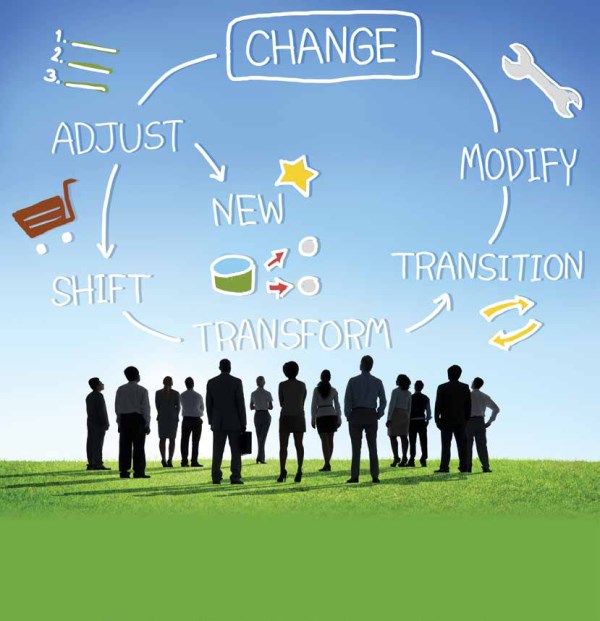2021: Adapt and Flex to Keep Up with Accelerating Change

2020 was a year many people are glad to put behind them. Despite the frustrations and disruption caused by COVID-19, we’ve also seen some benefits of the global pandemic.
It’s hard to find many businesses unaffected by COVID-19. But not all impacts have been negative. Agile businesses, particularly those already advanced with technology to support remote working and collaboration, embraced the opportunity to implement and drive change, and emerge stronger than before.
We’ve seen many examples of the pandemic accelerating changes that were previously concepts or tools used by a select few. Lockdown forced many businesses to explore new ways of connecting with each other and their customers, and establish new norms for the way they operate and interact.
More than ever, businesses must now adapt and align the commercial goals with the evolving customer experience and the often new found motivations for employee flexibility. This is critical for ongoing success in the post pandemic world, particularly when attracting and retaining professional and motivated staff who are simultaneously striving to build satisfying careers.
An Industry Response
In the 18 months since the outcomes of the Hayne Royal Commission, there’s been a wave of new and updated legislation and regulation aimed at raising professional standards – and this will ramp up over the coming years.
The Government has boldly pushed ahead with its reform agenda throughout 2020, including the rollout of the new General Insurance Codes of Practice.
The Codes have a strong emphasis on consumer trust and experience, introducing standards that far exceed the basic legal requirements. After several years of consultation and refinement, the standards are designed to meet and anticipate consumer expectations, and enhance the rights that customers can have of insurers.
It’s a significant milestone for the industry. Insurers have proactively committed to provide appropriate and ongoing training for their employees to ensure the standards are consistently applied and professionalism becomes a cornerstone of their operations.
Key features of the General Insurance Codes of Practice
• Use of plain English.
• Removal of unfair contract terms to favour owners.
• New vulnerability provisions to provide additional support or assistance for customers experiencing family violence or mental health issues.
• Enhanced financial hardship provisions.
• Community benefit payments of up to $100,000 where an insurer commits a significant breach.
• Mandatory investigation standards for claims investigators.
Our Strata Ecosystem Focusing on the Future
We can expect to see more of this as the industry and regulators relentlessly pursue their goal of restoring community trust in the insurance sector by raising professional standards.
BCB has watched, listened and openly contributed to the industry changes. We’ve always placed great importance on investing in technology, and throughout 2020 this enabled our employees to seamlessly adapt to working from home without compromising on the quality of customer care, with virtual meetings and collaborations now a regular way of doing business.
There’s no going back now.
Throughout 2020, a new level of trust has been established between employees and employers, accepting that remote working doesn’t necessarily result in a drop in standards or productivity. In fact, it’s often quite the reverse.
Technology really can help us rebuild trust with customers. But front-line employees must have the right qualifications and training to deliver the experience.
Strata Managers see the opportunity to redefine their customer value proposition. The changed working environment has increased the visibility of exactly what Strata Managers do for Owners. So, with full SCA support, they realise now is the perfect time to reposition themselves as a trusted adviser, professionally solving issues for Owners. Andrew Chambers, Managing Director of Chambers Franklyn Strata Management and National President of SCA Australasia, has recently observed the experiences of many managers.
“Covid-19 had created challenges and opportunities…with so many of our clients working from home we were quick to respond with additional cleaning, safety and maintenance…alongside this we identified opportunities to improve communication and implement new technology more quickly than we would have otherwise.”
These experiences of adapting in 2020 suggest many distant seeming goals could be now be within reach. Unexpectedly many of us have grown closer by being forced apart, and we have sought stronger connection as we have cared for the safety and wellbeing of customers and employees.
Uniting and Protecting Strata Communities
As an industry sector, our focus remains on protecting the lives and livelihoods of our strata communities. The promise to raise professional standards, combined with ongoing digitisation and innovation will help us all improve the level of support we offer to our customers, whilst also strengthening our own levels of job satisfaction and achievement as individuals.
2021 will be the year we consolidate this change and build a brighter future that has its foundation in authenticity and trust.
View Comments
(0)